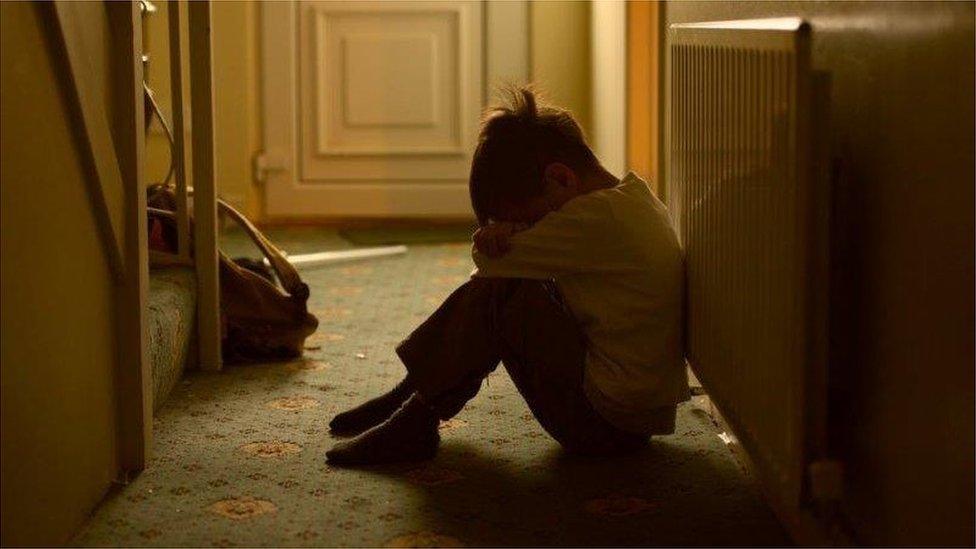Marianvale home adoptee searches for mother
- Published
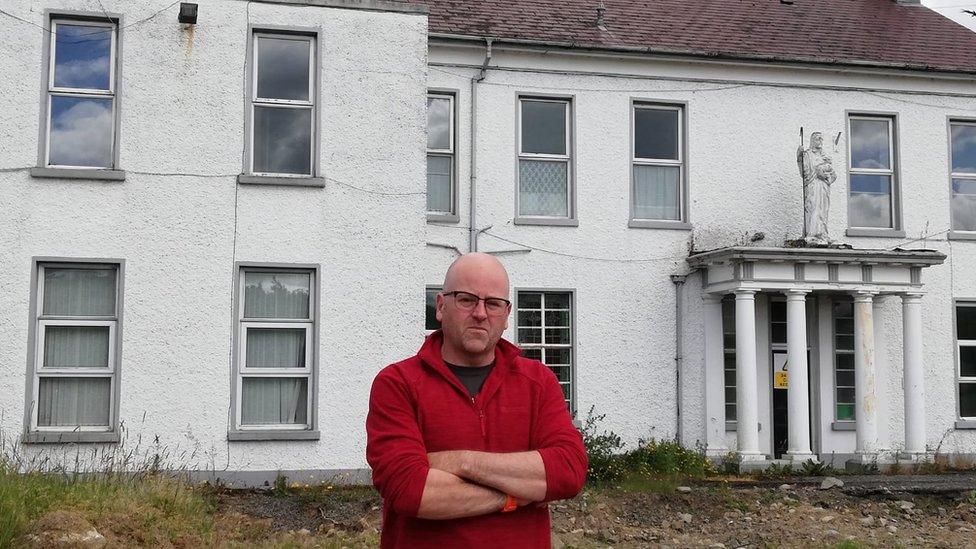
Mark McCollum pictured outside the Marianvale mother and baby home in Newry
More than 50 years after he was adopted, Mark McCollum lives not far from the infants' home where he spent several months.
It was in Fahan in County Donegal, and now Mark has a house in the hills near Ramelton in the same county.
But he began his life across the border and is trying to find the woman who gave birth to him.
"My biological mum - as far as I'm aware - was from west Belfast," he explains.
"She was young, around 16. Her name was Kathleen.
"She had a relationship - I'm not sure what kind of relationship - with a member of the British Army. I was a product."
Mr McCollum's birth mother spent time in Marianvale mother and baby home in Newry.
He was born on 27 October 1966 and shortly after that taken to Londonderry, then across the border to Fahan.
Mr McCollum believes his mother moved to England but may still have relatives in Belfast.
"That's as much as I know," he says.
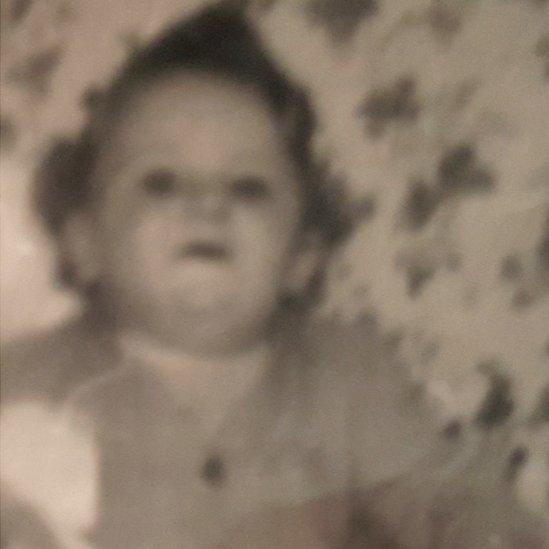
Mark McCollum as a baby
He is keen to stress he had a "fantastic, even privileged" upbringing.
But he discovered a fresh yearning to know more about the circumstances of his birth when his daughter was born 16 years ago.
"I saw her from the very first moment she was born - there was my one biological link to the world that I knew of," he says.
"So it raised questions - who was looking after me for those months, transporting me around, making decisions on my behalf?"
'I was Paul'
He says his quest for information has been "very difficult" because he was born in Northern Ireland but adopted in the Republic of Ireland.
Mr McCollum believes differences in the law between the two jurisdictions have caused problems.
He has an adoption certificate and a baptism certificate but has never seen his birth certificate.
"I assume one exists somewhere," he says.
He recounts how, when he was driving from Sligo to Donegal one afternoon, he received a call from a social worker who told him his original name was Paul.
"For 40 years, I'd been called Mark. To suddenly realise you weren't who you thought you were was interesting," he says, with a sense of understatement and irony.
A Commission of Investigation into mother and baby homes in the Republic of Ireland is due to report next year.
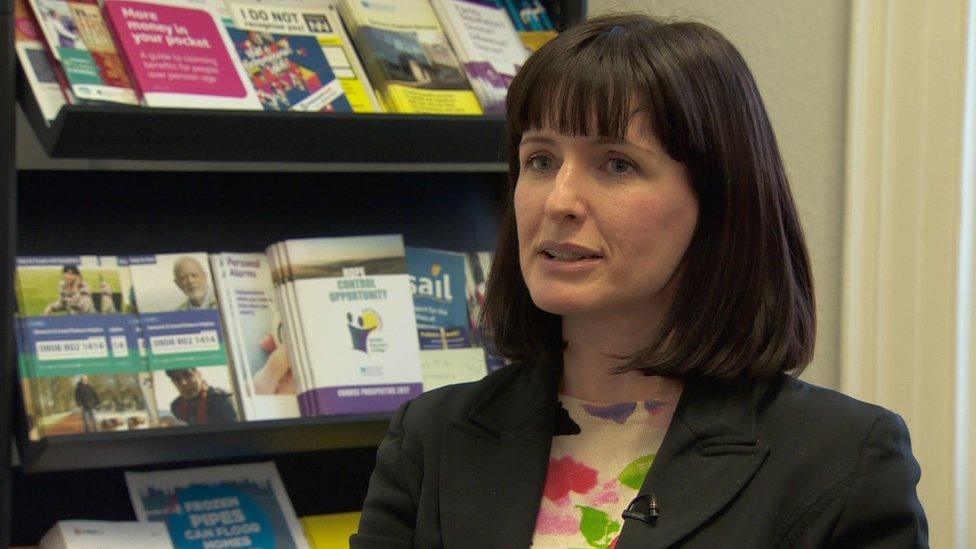
Paula Bradshaw says a judge-led full public inquiry is needed into the homes
But calls have grown in recent years for an inquiry to be held into the homes which operated in Northern Ireland.
Stormont has commissioned a team of academics to carry out research into the institutions.
Their report will help to decide whether there should be a bigger investigation.
Dr Leanne McCormick from Ulster University is on the team.
"In the Republic, there have been commissions, there have been inquiries, people have had a longer period of time to think about those issues and come forward," she says.
"I don't think that has been the same in Northern Ireland - there's a big taboo about these subjects."
She points out that in Northern Ireland, several homes were run by the Protestant churches.
"I think that women, particularly from Protestant backgrounds, haven't engaged with what's happened in the Republic because they associate it with the Catholic Church."
She's appealing for anyone who had any connection with the institutions - mothers, adoptees, health workers, members of religious orders and others - to get in touch with the researchers in confidence.
'There to punish'
A number of politicians have taken a close interest in the issues.
Alliance MLA Paula Bradshaw thinks the research will pave the way for a full inquiry.
"Given my understanding of the extent of abuse that took place in the mother-and baby homes, only a judge-led full public inquiry would be sufficient to bring justice," she says.
The leader of the Catholic Church in Ireland, Archbishop Eamon Martin, is among the senior church figures who have supported the calls for an inquiry.
Mr McCollum thinks there was a "culture of silence" for which the church, state and even wider society were responsible - and it has to change.
"These places weren't there to support young girls," he says. "They were there to punish people because they'd sinned - and that's wrong," he says.
"They were kids, for heaven's sake - they were children with children."
- Published22 May 2018
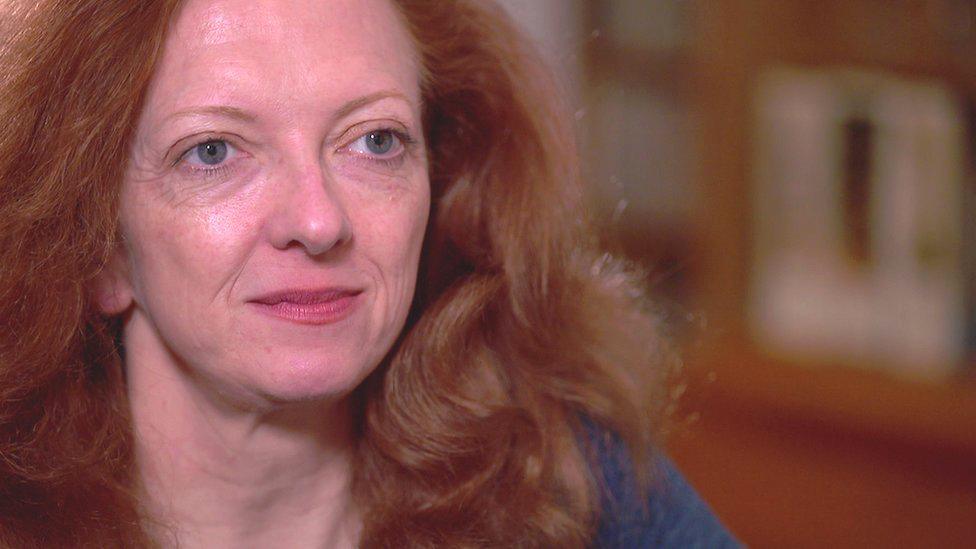
- Published11 January 2018
